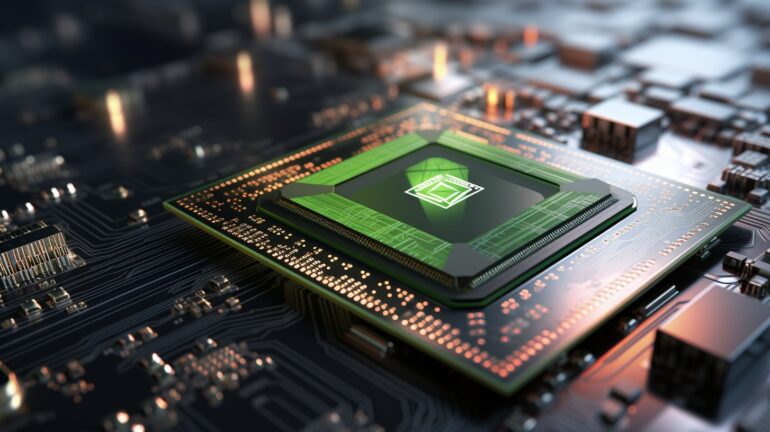TL;DR:
- 01.AI, a Chinese AI startup, stocked up on Nvidia chips ahead of stricter export restrictions.
- Founder Kai-Fu Lee ensured a steady supply to last at least 18 months.
- Nvidia GPUs are crucial for advanced AI model training.
- Lee expressed uncertainty about China’s ability to develop equivalent chips.
- Rising US-China tensions are expected to divide the tech industry further.
- 01.AI introduced an open-source language model, Yi-34B, outperforming rivals.
- The startup plans to offer proprietary versions and generate significant revenue.
- Large investments in GPUs are essential for AI model development.
- Constant fundraising for GPU procurement is a winning strategy.
- Lee emphasized the virtuous cycle of GPU-driven intelligence and profitability.
Main AI News:
In a strategic move to ensure a stable supply of high-end Nvidia Corp. semiconductors, one of China’s emerging artificial intelligence startups, 01.AI, embarked on a significant buying spree earlier this year. This strategic maneuver took place just before the US government tightened export restrictions, effectively halting chip sales to all Chinese customers.
Founder and Chief Executive Officer Kai-Fu Lee revealed that 01.AI managed to amass a substantial stockpile of Nvidia chips, securing their supply for the next 18 months or more. Nvidia’s graphics processing units (GPUs) are widely recognized as the industry’s most advanced components for training AI models, including groundbreaking developments like OpenAI’s GPT-4.
Speaking during a Bloomberg Television interview at the Bloomberg New Economy Forum, Lee, a seasoned veteran in the field of AI with a track record at Apple Inc., Microsoft Corp., and Google’s China unit, emphasized the importance of this strategic move. He also noted that 01.AI’s rapid ascent led to a valuation exceeding $1 billion in less than eight months.
As the US government restricts the export of chips and chip-making equipment, China’s Communist Party has launched an ambitious initiative to develop its advanced semiconductor capabilities. However, Lee remains skeptical about whether China can achieve technological self-reliance in time to meet the demands of companies like his own. Semiconductors serve as the foundation of the technology industry, underpinning everything from AI and smartphones to military applications.
Lee commented, “The jury is out on whether China in 1.5 years can make equivalent or nearly as good chips.” He lamented the escalating tensions between the US and China and predicted a further fragmentation of the global technology landscape.
“We will have two parallel universes,” Lee predicted. “Americans will supply their products and technologies to the US and other countries, and Chinese companies will cater to China and other users of Chinese products. The reality is that they will not compete very much in the same marketplace.“
01.AI recently unveiled an open-source large language model named Yi-34B, surpassing leading open-source competitors such as Meta Platforms Inc.’s Llama 2 in certain metrics, as indicated by Hugging Face rankings. The startup plans to offer proprietary versions of the language model to paying customers, along with various applications, aiming to generate substantial revenue in the upcoming year.
According to Lee, developing AI models comes with significant costs, as millions must be invested in GPUs to enhance technology. However, there is no alternative because a direct correlation exists between GPU investments and product performance. To secure funds for chip purchases, 01.AI secured investments from Alibaba Group Holding Ltd.’s cloud unit and borrowed from Sinovation.
Lee emphasized the importance of a continuous fundraising strategy for large language model generative AI companies, where a significant portion of funds raised, possibly three-quarters, is allocated to GPU procurement. He concluded by highlighting the unprecedented nature of technology that continually evolves and becomes smarter with each GPU addition, creating a virtuous cycle of innovation and profitability.
Conclusion:
01.AI’s proactive chip stockpiling strategy underscores the critical role of Nvidia GPUs in AI development. However, China’s semiconductor ambitions face challenges amid geopolitical tensions. This move highlights the increasing fragmentation of the global tech market, with companies catering to distinct regions. 01.AI’s focus on innovative AI models and revenue growth positions it strategically in a competitive market.

